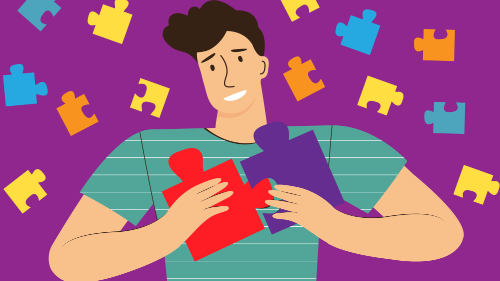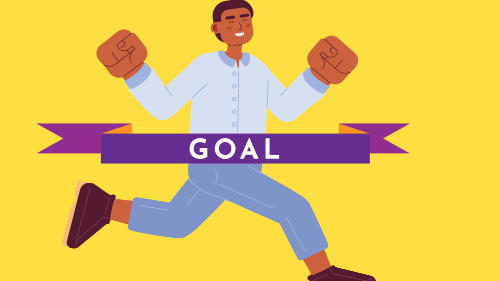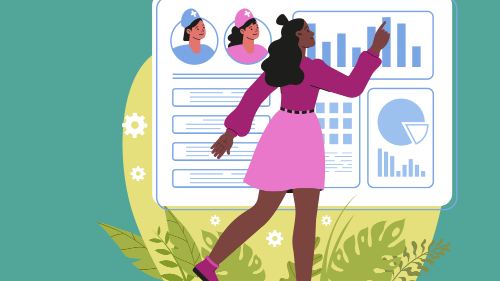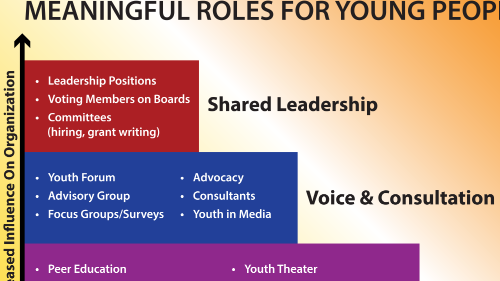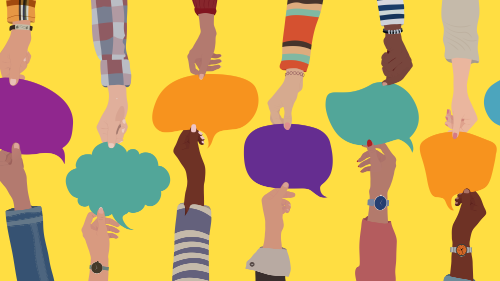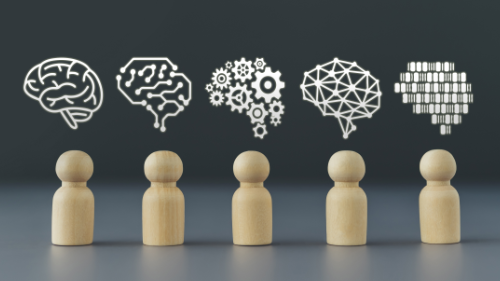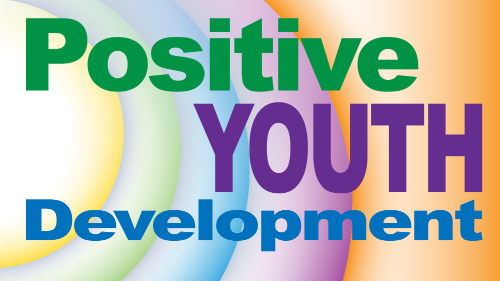SEL Toolkit: Self-Management
Social and Emotional Learning (SEL) enhances our ability to manage our feelings, thoughts, and behaviors in a variety of contexts. In this part of the SEL Toolkit, we link to resources that help youth work professionals:
- Promote a growth mindset
- Promote perseverance
- Nurture motivation to learn
- Facilitate goal setting
- Facilitate emotion regulation
- Integrate mindfulness practices
Promote a Growth Mindset
Carol Dweck and other researchers have observed that rewarding effort, grit, and perseverance helps children and adolescents develop a growth mindset — the belief that you can learn and achieve by making persistent efforts. By contrast, those who have a "fixed" mindset believe that innate ability, rather than effort, determines success. A growth mindset increases learning and exploration as well as the ability to handle frustration and failure, while a fixed mindset can lead to a sense of inadequacy as well as failure to keep trying if success isn't achieved right away.
Strategies to promote a growth mindset include:
- Educate youth about growth and fixed mindsets
- Discourage labels — such as "smart" or "dumb" — that convey fixed ability
- Praise effort, strategies, and progress, not intelligence or abilities
- Provide challenging activities with the understanding that challenges are fun and mistakes help people learn and improve
Carol Dweck - A Study on Praise and Mindsets
This video describes Carol Dweck's research on the effects of praise on students. The study involved over 400 fifth-graders from all over the United States.
Mindset and Motivation in Adolescence
"Growth" and "fixed" mindsets have an impact on our levels of achievement and how we feel about failure and learning. In this article, Kristen Elmore introduces the research on mindsets.
Encouraging Growth Mindsets
Growth mindsets support learning, while fixed mindsets can make us reluctant to challenge ourselves. How can people who work with adolescents encourage them to adopt growth mindsets?
Mindset Kit
The Mindset Kit is a free set of online lessons and practices designed to help you teach and foster adaptive beliefs about learning. Resources for mentors, educators, and parents are included. Created by the Project for Education Research that Scales (PERTS).
Growth Mindset for 9th Graders
On this site, PERTS provides an evidence-based program designed to increase students' engagement, motivation, and success by laying the foundation for a growth mindset. Free to high schools.
Mindset Works
These web pages contain videos about Carol Dweck's work and research, as well as interviews with teachers and students.
Step it Up 2 Thrive: Growth Mindset
These web pages from the Thrive Foundation for Youth include reading material, youth activities, lesson plans, and tips on how to develop growth mindsets.
Promote Perseverance and Resilience
Angela Lee Duckworth: The Key to Success? Grit
This TED Talk by psychologist Angela Lee Duckworth highlights her research on grit and perseverance as key factors for success.
Character Lab Playbook: Grit
Character Lab playbooks offer research-based tips, guidance, and activities for helping children develop specific character strengths.
Activities Guide: Enhancing and Practicing Executive Function Skills
This guide describes a variety of activities and games that represent age-appropriate ways for adults to support and strengthen various components of executive function and self-regulation in children and adolescents. Center on the Developing Child, Harvard University.
Insight Center: Perseverance
This site offers examples of programs that intentionally cultivate perseverance, as well as program strategies and relevant research. Resources are compiled by Boston After School & Beyond and their partners.
Nurture Motivation to Learn
Character Lab Playbook: Curiosity
Character Lab playbooks offer research-based tips, guidance, and activities for helping children develop specific character strengths.
Facilitate Goal Setting
To facilitate goal setting, invite reflection about life purpose and the future. Ask questions like:
- What are your hopes and dreams?
- Which one is most important to you just now?
- What can you do now to bring that dream a little closer?
- What do you love doing most?
- What do you do that makes you feel really good about yourself?
- Who do you really admire and why?
Character Lab Playbook: Purpose
Character Lab playbooks offer research-based tips, guidance, and activities for helping children develop specific character strengths.
Facilitate Emotion Regulation
General strategies for helping youth learn to manage their emotions include:
- Encourage youth to name and express their emotions
- Acknowledge their emotions (empathic listening)
- Model emotion self-regulation and positive self-talk:
- I am not going to let it get to me
- I can handle this
- I can calm down
- I have other friends who like me
- With more practice, I'll get it
- Everyone makes mistakes. I'll do better next time
- Role play situations using a problem-solving approach:
- Define: What is the problem and how am I feeling about it?
- Brainstorm: What can I do about it?
- Evaluate possible solutions: What would happen if I did this?
- Implement: Am I doing what I decided to do?
- Evaluate: How did it turn out?
Strengthening Self-Regulation
In this ACT for Youth webinar, Jutta Dotterweich discusses the importance of self-regulation and provides practical resources.
Insight Center: Self-Regulation
This site offers examples of programs that intentionally cultivate self-regulation, as well as program strategies and relevant research. Resources are compiled by Boston After School & Beyond and their partners.
Executive Function and Self-Regulation
The Center on the Developing Child provides this useful collection of brief articles and videos explaining executive function and describing how to build executive function skills in children and adolescents. Harvard University.
Character Lab Playbook: Self-Control
Character Lab playbooks offer research-based tips, guidance, and activities for helping children develop specific character strengths.
Integrate Mindfulness Practices
Helpguide's Benefits of Mindfulness
Mindfulness is the practice of purposely focusing your attention on the present moment — and accepting it without judgment. This web page provides guidance and simple mindfulness practices, with links to resources.
Greater Good: Mindfulness
Berkeley's Greater Good Science Center, University of California, provides mindfulness guidance and resources, including a series of videos.
Edutopia: Quiet Time Primer
This brief primer gives concrete instruction and process descriptions on how to set up meditation and quiet practices with youth.
Mindfulness Exercises
These activities from the National Youth Council of Ireland are designed to give children time to slow down, pay attention to what is around them, and focus on the present.
